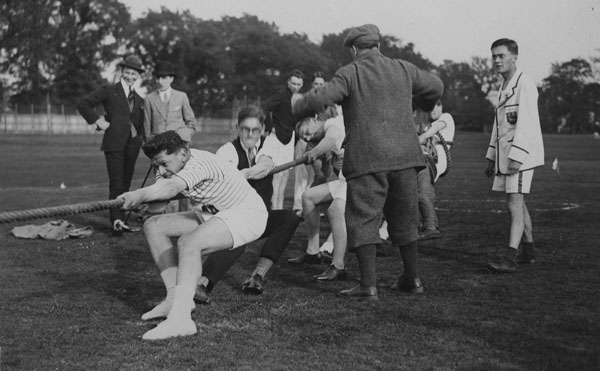One of the main goals of the Impact 360 Gap Year is to come alongside first-year college students with respect to hearing and clarifying God’s call on their lives.
We help students ask and begin to answer this question:
“What would He have me do in this world?”
This is not an uncommon question among Christ-following undergraduates, but certainly one that is often answered poorly by colleges and universities.One oft-neglected factor in finding the answer to the “where am I headed in life” question is what I call the “community factor.” And by community, I am specifically referring to the community of believers in Jesus Christ of which one is a part.
1 John 1:5; 1:7
“The essence of the community of the Spirit is light, for ‘God is light, and in him is no darkness at all….If we walk in the light, as he is in the light, we have fellowship one with another.”
When you think of community, what comes to mind? Friends, family, and your neighborhood certainly can qualify as communities of various sorts. But not all communities are created equal with respect to helping its members hear and discern the call of God on their lives. The following two figures from history show us how community is brought to bear on our discernment of calling.
Dietrich Bonhoeffer, the German pastor-theologian during World War II once said that “Christian community is founded solely on Jesus Christ—it is therefore a spiritual, not a psychic reality.” What does this mean? It means that the life of the community flows from the way in which the Holy Spirit orders it and moves within the members of it, as opposed to the way a human community is ordered by our own sinful inclinations and desires. In effect, there is a redemption that has taken place when the Spirit works in this way. He works in concert with us. Of the essential importance of Christian community, Bonhoeffer said:
God has willed that we should seek and find His living Word in the witness of a brother, in the mouth of man. Therefore, the Christian needs another Christian who speaks God’s word to him. He needs him again and again when he becomes uncertain and discouraged, for by himself he cannot help himself without belying the truth. He needs his brother man as a bearer and proclaimer of the divine word of salvation. He needs his brother solely because of Jesus Christ. The Christ in his own heart is weaker than the Christ in the word of his brother; his own heart is uncertain, his brother’s is sure.
Bonhoeffer knew from experience the importance of genuine Christian community, having led and taught in a clandestine seminary in the age of Hitler and the Nazi government. Through community Bonhoeffer gave and received spiritual encouragement, and it was through community that he realized his call to stand against the human atrocities caused by the Nazi regime. In April of 1945, he was executed for living out his calling.
William Wilberforce, was an 18th century member of the British parliament who led the movement to abolish the slave trade in England. His call was clearly to work out his Christian worldview in the public sphere, which he did with unmatched commitment and vigor. During a time when he was doubting this call—a dark time in his life when the pressures and ugliness of politics were discouraging him—he considered abandoning his political career and going into full-time parish ministry. Interestingly, none other than John Newton, author of the hymn Amazing Grace, wrote to Wilberforce when he learned of Wilberforce’s plans, and desperately urged him not to pursue the ministry, but to stay the course in the British parliament. Newton himself had been a slave trader before his conversion to Christianity, and he knew God would use Wilberforce in his station.
Similarly, John Wesley said this to Wilberforce:
”… unless God has raised you up for this very thing, you will be worn out by the opposition of men and devils. But if God be for you, who can be against you?”
Throughout the process, Wilberforce endured one setback after another, often burdened by poor health and discouragement brought on by the attacks of his political opponents. Yet, his position against slavery eventually won. Wilberforce’s efforts in leading the abolition movement were successful, but it took 20 long years. What were the means of grace by which he stayed the course and continued to pursue his calling to abolish the British slave trade? One of those means was his community, known as the Clapham sect. This was a group of committed Christians who banded together for the sake of impacting the Kingdom long-term. This community was marked by a common commitment to Jesus Christ, a clear sense of calling, mutual submission, and corporate worship.
Bonhoeffer and Wilberforce show us how God speaks to us through Christian community, and He shows us that with Him, all things are possible (Matt. 19:26) if we will only listen to him speaking through his Word and through our Christian brothers and sisters.
In God’s economy, there is no room for individualist heroes. To what extent are you part of a genuinely Christian community that can help you clarify your God-given calling?
